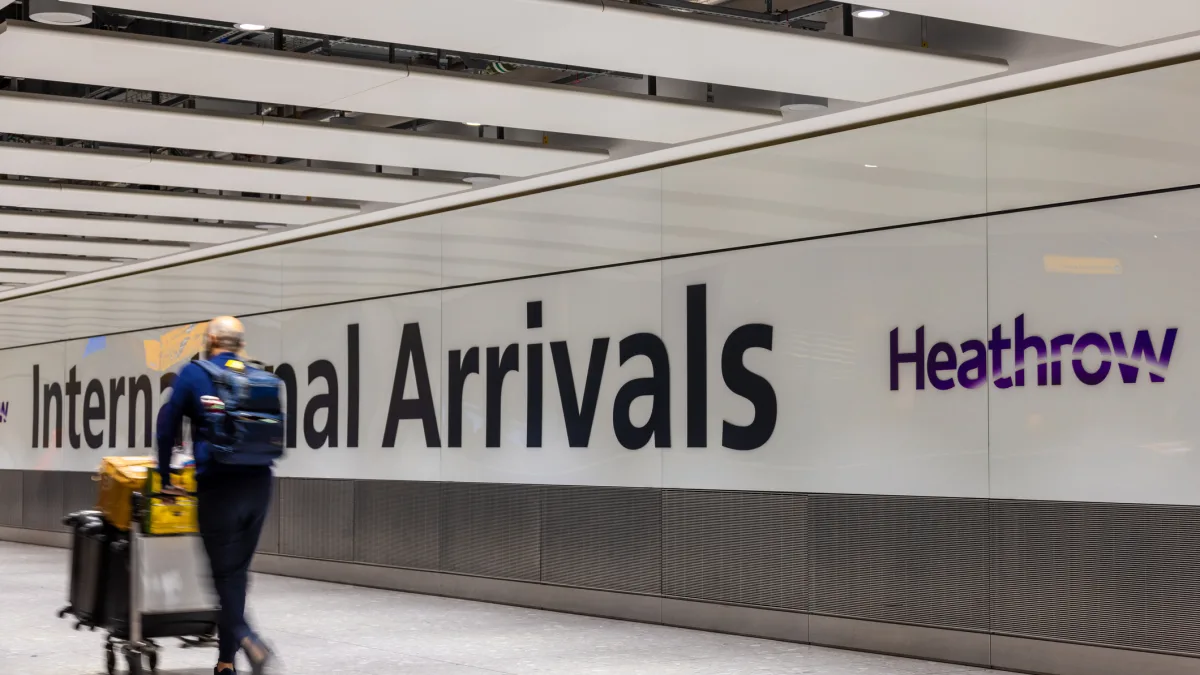Bucharest’s timing could hardly be worse. Romanian MPs want to flog residence permits to rich foreigners for 400,000 euros a pop—just as the rest of Europe slams the door on these dodgy schemes. The National Liberal Party’s new bill, now sitting in the Senate, promises five-year permits to anyone who parks their cash in Romanian bonds, property or shares. Wait five years and you can even bag a burgundy EU passport. The lawmakers say Donald Trump’s new American ‘golden card’ gave them the idea. Perhaps they missed the bit where America’s investment visa programme became a byword for fraud and abuse.
You’d think Romania’s politicians might have noticed what’s happening next door. In April, EU judges told Malta its cash-for-passports racket was illegal. Spain is killing off its scheme after locals got priced out of their own cities. Portugal banned property purchases from its golden visa menu after watching Lisbon turn into a playground for absentee landlords. Even the Greeks, who’ve pocketed 2.6 billion euros from their scheme since 2013, keep increasing the price to cool their bonkers property market. Yet here comes Romania, notebook in hand, ready to repeat every mistake.
These schemes always follow the same depressing script. Politicians spot a chance for easy money (something Romania badly needs). They swear blind that rigorous checks will keep out the riff-raff. The cash starts flowing—Greece’s billions, Portugal’s 7.3 billion euros windfall. Then reality bites. Young locals can’t afford flats because some oligarch’s third cousin needs a bolthole. The security services discover they’ve accidentally given residence to people they really shouldn’t have. By then it’s too late, the damage is done.
When money talks, standards walk
Romania believes it’s different. Its proposal demands sign-offs from spooks, money-laundering watchdogs and ‘other relevant institutions’. If that sounds familiar, it should. Cyprus made the same promises before its programme became a laundromat for dirty money. The Cypriots raked in 1.4 billion euros a year before the scheme collapsed under an avalanche of scandals. Malta spent years insisting its due diligence was watertight. Then reporters found it had handed passports to assorted crooks and chancers.
Golden visas are rotten from the start. Why should a factory owner from Shenzhen skip the queue while a programmer from Delhi jumps through hoops? One has money; the other has skills. Which one actually helps the economy? When countries put residence permits on sale, they tell the world that cash matters more than talent, entrepreneurship or hard work. It’s immigration policy designed by estate agents.
The timing stinks for another reason. Europe’s already nervous about Russian money and influence. Ukraine is still burning. Now Romania wants to roll out the welcome mat for anyone with a fat wallet? Intelligence services can run all the background checks they like. They still won’t know if that lovely gentleman from Moscow with interests in ‘import-export’ might cause problems five years down the line. Or ten. Or twenty.
The investment myth
Golden visa pushers always bang on about investment. Look at all that lovely foreign money, they say. But where does it actually go? Not into factories or start-ups or anything useful. It piles into mansions and apartments that sit empty eleven months a year. Singapore pulls in vast foreign investment without flogging residence permits. So does Switzerland. They do it the old-fashioned way: with decent institutions, educated workers and courts that actually work.
Romania could use some of that. The country sits near the bottom of European corruption rankings. Its bureaucracy moves at the speed of treacle. Foreign investors complain about arbitrary rule changes and officials with their hands out. Fix those problems and real investment will come. But that’s hard work. Selling passports to rich people? Much easier.
Brussels absolutely hates these schemes. Eurocrats know that one country’s lax standards become everyone’s problem. Give a Russian oligarch Maltese papers and he can swan around Munich or Milan as he pleases. The European Commission has been threatening legal action and launching lawsuits left and right. It’s made crystal clear that golden visas trash the whole idea of EU citizenship.
The bill always comes due
Watch what happens to these programmes. They start with fanfare. Ministers boast about the investment flooding in. Property developers pop champagne. Then locals realise they can’t afford to live in their own cities. The press starts digging into who’s actually buying these permits. Turns out it’s not always paragons of virtue. Eventually, someone discovers that a wanted fraudster has been living it up with an EU passport. Cue outrage, embarrassment and hasty programme closure.
Spain’s learning this now. So is Portugal. Ireland shut its scheme in 2023 after years of controversy. The smart money would be on Greece and Italy following suit within five years. These programmes don’t last because they can’t. The contradictions are too obvious, the costs too high.
Romania’s MPs claim they’ve studied what works elsewhere in Europe. It’s a strange conclusion to draw. Every scheme they cite as a model is either dead, dying or causing massive headaches. The lesson isn’t how to build a better golden visa programme. It’s that you shouldn’t build one at all.
The European Court of Justice put it best: citizenship means belonging to a political community. You can’t just auction it off to the highest bidder. Romania’s politicians seem to think they’ve found a clever workaround—sell residence first, citizenship later. But everyone can see through that wheeze. It’s the same bad idea in a slightly different wrapper.
Romania has real problems that need fixing. Its young people keep leaving for better opportunities abroad. Its infrastructure creaks. Corruption scares off legitimate investors. A golden visa programme solves none of these issues. It just creates new ones. The country would be better off learning from its neighbours’ expensive mistakes rather than insisting on making its own. But then again, that would require politicians to resist the lure of easy money. In Bucharest, as elsewhere, that seems to be asking too much.
Photo: Dreamstime.







